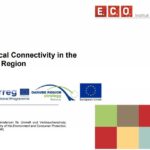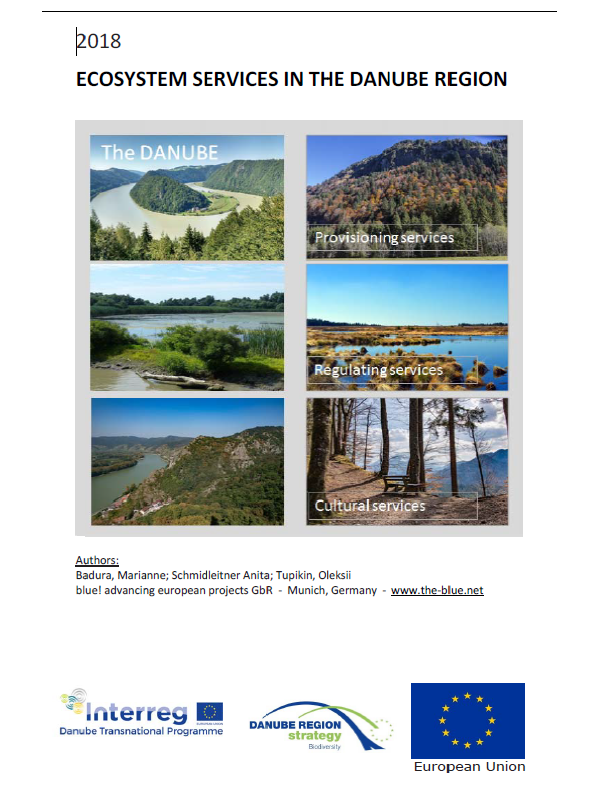It reflects the classification systems which have been used and describes the Common International Classification of Ecosystem Services (CICES) which by now has achieved a standard status at European and international level. The concept of ecosystem services has meanwhile been integrated in many concepts and strategic papers on how to better and sustainably organize the use of natural resources. It is important to indicate that the EUSDR and the Danube Transnational Programme already consider certain ecosystem services in their funding priorities. However, at present the concept is mainly used to defend natural assets against further economic exploitation instead of pro-actively balance the availability of natural resources now and for the future against short-term economic interests of countries, regions or single companies. The present study analysed more than 60 documents, all results from ES assessments in the overall Danube area or reports on the situation of ES assessment in the Danube region countries.
The findings show (a) a limited acceptance of study results and of integration into decision-making (as they may hinder particular economic developments) and (b) a heterogeneous picture of methodologies applied in the last 10-15 years with a strong tendency to be more homogeneous in the last 5 years, which is mainly due to the EU-wide MAES (Mapping and Assessment of Ecosystems and their Services) process. Only the Czech Republic has achieved a complete assessment of ES for its national territory, all other countries in the Danube area have substantial gaps. Austria and Germany are on a good way, in most other countries many regional studies are available with very interesting results (e.g. in Slovakia, Bulgaria, Hungary or Romania). In some countries, the methodological discussion on ecosystems and related services or indicators has been ongoing for many years without coming to a final conclusion. Most of the countries complain about a lack of financial and human resources to systematically carry out the task of a national assessment.
The majority of ES assessments cover territories with a special designation status, e.g. protected areas, high nature value areas, etc. The pro-active approach of assessing full territorial units in order to gain knowledge about the ES available and to use this information in a precautionary way for better preparing strategic decisions is rare. Some municipalities or smaller regions have carried out such a type of assessment, mostly by using a participatory approach and by integrating stakeholders and the population. This approach seems to be the most promising one as it helps to create acceptance and appreciation for the services of nature. An assessment at national level is useful for the expert community, but difficult to communicate to the wider public.
The concept of ES is rather abstract and only concrete examples create the necessary understanding for balancing short-term economic interests with the long-term perspective of ecosystems and their services. Within the Priority Areas of the EUSDR many options exist where ES can be integrated into considerations on strategic developments, e.g. for waterways and transport, for spatial planning and infrastructure development or for the creation of tourism destinations. The objective for all Priority Areas must be to ensure the availability of ES also for the future. The most important ones may be the supply of fresh water, biomass and nutrition, climate regulation, recreational values and the beauty of landscapes and nature in the Danube area.
In order to achieve this, several options exist: PA06 should promote the concept and available results to all Priority Areas of the EUSDR for consideration in their Action Plans. The DTP should intensify its integration of ES into the funding priorities beyond 2020. The economic development of the Danube area should not lead to detrimental impacts on natural assets which cannot be reversed and which , in the end lead to negative economic impacts.
For more information, you can find the Study on Ecosystem Services in the Danube Region HERE.




